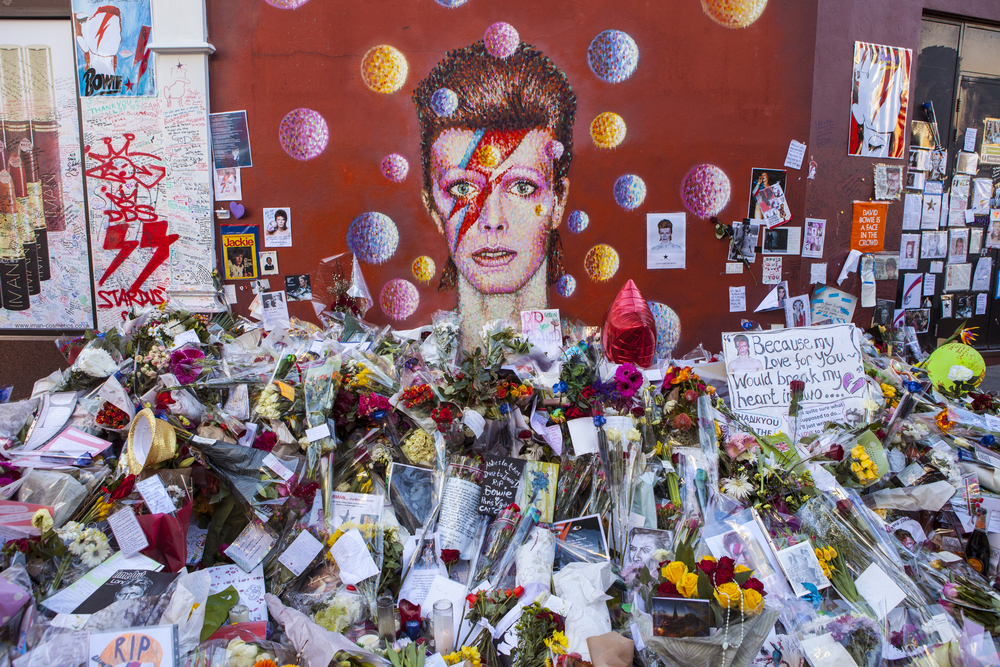Professor of Cultural Studies, Shane Blackman, looks back on the life of artist, singer and performer David Bowie.
David Bowie’s contribution to British society was enormous; he was a cultural giver and not a taker.
True, he did take influences from many people and many genres to make his own, but that is what an artist does. He touched so many people through so many forms of entertainment, not just music but also film, theatre, poetry and art; for both adults and children.
He has not been without his demons and that was clear on the Cracked Actor documentary (BBC production filmed in 1974 during a period when Bowie was addicted to cocaine) where he was clearly close to the edge of reason. But he saved people from themselves too, including Iggy Pop and Lou Reed. This is Bowie’s real human side. Funny that we see Bowie as so human when in fact he spent much time suggesting that he was from another world as Brian Eno remarked.
His influence has shaped and formed the biography of so many people’s lives over the decades. Many people followed him from the Space Oddity (1969) period right up to the Blackstar (2016), which is all about critically assessing demise at a personal level.
However, his ever-changing persona meant he always stayed in tune with what was going on in the world. Some people would have dropped out from some identities he created and more joined as the years went by, but he was always at the forefront of creative innovation. He asked you to respond to his art. This makes him a personal artist and part of people’s subjectivity.
Not everyone, but many a few, have travelled with him through his style and sexuality and his ability to be able to write a beautiful melody or a series of song lyrics which have stayed with people.
Other musical artists for example the Rolling Stones, Led Zeppelin or Queen developed their own unique sound at the time of their launch and stayed true to that authentic sound throughout their careers. But Bowie changed and he changed regularly. To do that and maintain his fan base shows the power of his work, but also the level of respect; he wanted fans to change with him. He changed musical genre and then developed it to engage with new generations.
He created music to dance to, but at the same time he was making music for people to think with for example Hunky Dory (1971).
You can apply this approach to his films. It wasn’t just for entertainment or even money, for example The Man Who Fell to Earth (1976) was made to disrupt thinking. Even his performance in Labyrinth (1986) was somewhat mystical. He did the introduction to The Snowman (1982) video, which was done remarkably straight, but because it is him, it comes across as a powerful piece for the imagination as he pulls the scarf gained form the snowman from his pocket. It is also so he can pick up new generations through his journey.
In interviews, he comes across as a very special person with an enormous depth and sensitivity no matter what he was doing. He speaks as someone who is genuinely interested in what he is doing. He is not just doing it for the money, although he has made millions form it. For people, Bowie comes across as ordinary – happy to laugh and joke. He smiled a lot. There is a strange duality of being very special and very ordinary.
This feature originally appeared in Kent on Sunday.
 Expert comment
Expert comment Jeanette Earl
Jeanette Earl 1203
1203


